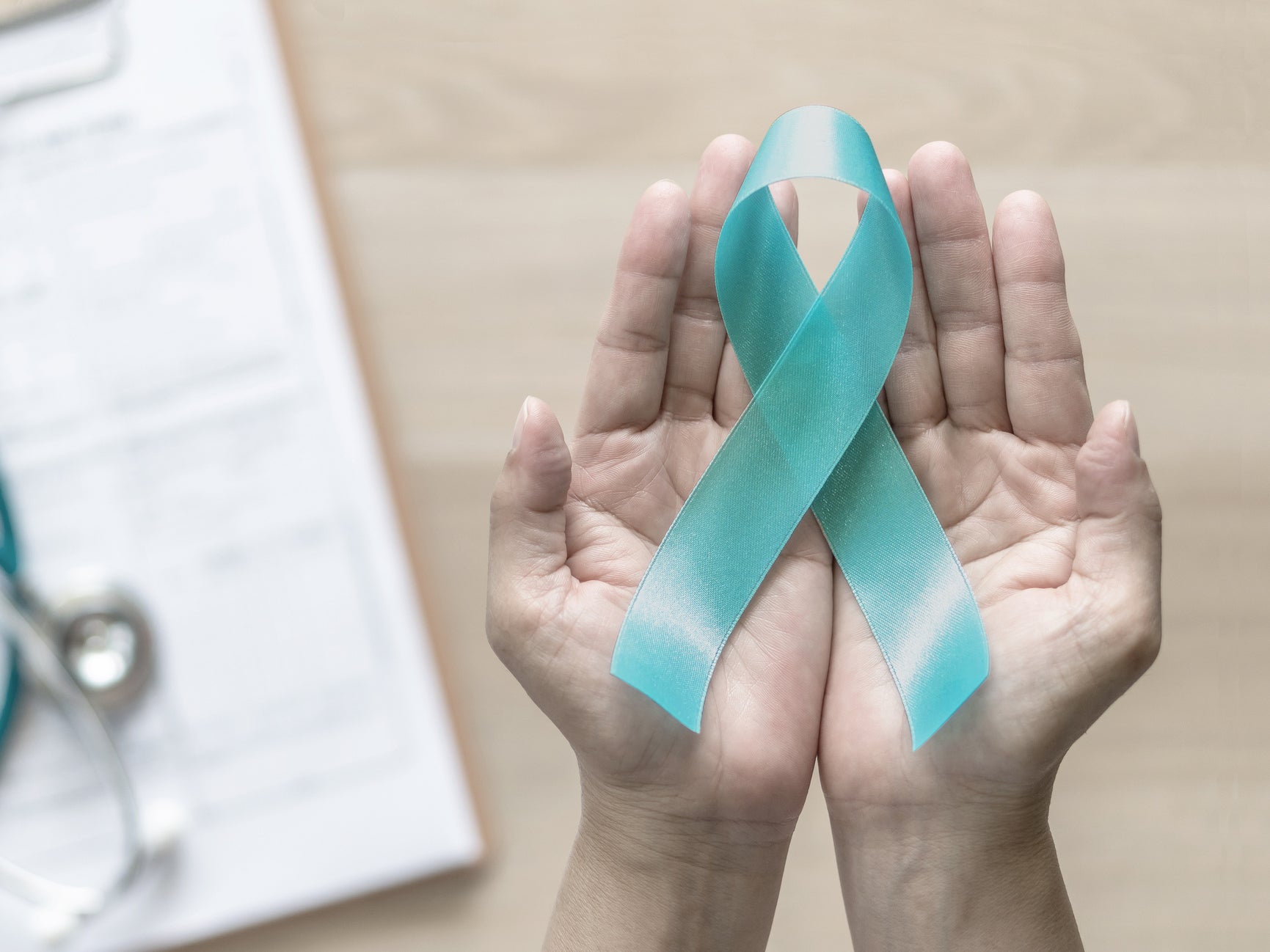The Independent's journalism is supported by our readers. When you purchase through links on our site, we may earn commission.
Ovarian Cancer Awareness Month: What are the symptoms and how is it treated?
Ovarian cancer is the sixth most common cancer among women in the UK

Your support helps us to tell the story
From reproductive rights to climate change to Big Tech, The Independent is on the ground when the story is developing. Whether it's investigating the financials of Elon Musk's pro-Trump PAC or producing our latest documentary, 'The A Word', which shines a light on the American women fighting for reproductive rights, we know how important it is to parse out the facts from the messaging.
At such a critical moment in US history, we need reporters on the ground. Your donation allows us to keep sending journalists to speak to both sides of the story.
The Independent is trusted by Americans across the entire political spectrum. And unlike many other quality news outlets, we choose not to lock Americans out of our reporting and analysis with paywalls. We believe quality journalism should be available to everyone, paid for by those who can afford it.
Your support makes all the difference.In March, Ovarian Cancer Awareness Month is observed in an effort to raise awareness of the condition.
Ovarian cancer is the sixth most common form of cancer among women, Cancer Research states, accounting for four per cent of all new cancer cases for female patients in the UK in 2016 (latest data).
Here is everything you need to know about ovarian cancer:
How is it caused?
“Ovarian cancer occurs when abnormal cells in the ovary start to multiply, creating a tumour,” Ovarian Cancer Action outlines.
“If the tumour is malignant it is cancerous and, left, unchecked, may grow and spread to other parts of the body.”
The ovaries are ductless, reproductive glands in the female reproductive system.
The glands are responsible for producing and storing eggs, in addition to producing and releasing the sex hormones progesterone and oestrogen.
Ovarian Cancer Action explains that there are three forms of ovarian tumour: epithelial, germ cell and sex-cord stromal.
“Around 90 per cent of ovarian cancer tumours are epithelial, the majority of which are known as serious epithelial ovarian cancer,” the organisation states.
“These tumours occur most commonly in women between the ages of 40 and 60.”
What are the symptoms?
The most common symptoms of ovarian cancer include experiencing a swollen stomach, discomfort in the tummy or pelvic area, feeling continually bloated, an increased need to urinate, a loss of appetite or becoming full from food quickly, the NHS explains.
People with ovarian cancer may also experience other symptoms, such as back pain, pain during sex, constant fatigue and nausea.
The NHS recommends going for a check-up with your GP if you have been feeling bloated as of late, especially if your bloating has occurred more than 12 times a month.
The health service adds that a person may be at higher risk of a diagnosis if they have persistent symptoms and are over the age of 50, or have a family history of breast or ovarian cancer.
“It’s unlikely you have cancer, but it’s best to check,” the NHS says. “A GP can do some simple tests for ovarian cancer to see if you have it.”
For more information on symptoms of ovarian cancer, click here.
How is it treated?
The way in which ovarian cancer is treated depends upon the patient, the NHS explains.
This is because treatment may vary depending upon how far the cancer has spread, the general health of the patient and whether they are still able to conceive.
“Most people have a combination of surgery and chemotherapy,” the NHS states.
“The aim of treatment is to cure the cancer, if possible. If the cancer is too advanced to be cured, treatment aims to relieve symptoms and control the cancer for as long as possible.”
When surgery for ovarian cancer is undertaken, the ovaries, fallopian tubes, the womb and the omentum (a layer of fatty tissue that stretches over the abdomen) is usually removed.
If the patient does not require their womb to be removed, then they may still be able to conceive in future.
The NHS outlines that the majority of women who undergo surgery for ovarian cancer are likely to also have chemotherapy.
Patients may also undergo radiotherapy or targeted therapies, which are “medicines that change the way cells work and help to stop cancer from growing and spreading”.
For more information on the way in which ovarian cancer is treated, click here.
Join our commenting forum
Join thought-provoking conversations, follow other Independent readers and see their replies
Comments